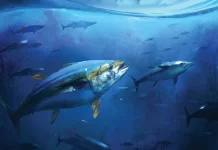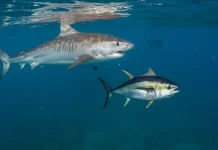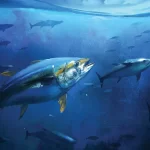The Pacific Islands Forum Fisheries Agency (FFA) submitted a powerful oral statement at the International Court of Justice (ICJ) in The Hague, urging immediate and decisive international action to combat climate change.
Representing the agency’s 17-member nations in the Pacific, Deputy Director General, Pio Manoa warned of the profound threat climate change poses to the Pacific region’s vital tuna fisheries and, by extension, the social, cultural, and economic lifeblood of its communities.
“The implications of climate change are not abstract for us. They are existential,” Manoa told the Court.
Manoa highlighted the Pacific region’s unmatched achievements in sustainably managing its tuna stocks, which are the largest and healthiest in the world. These fisheries underpin the economies and food security of the agency’s small island developing States (SIDS).
The Deputy Director General celebrated the FFA’s world-leading conservation measures developed over 45 years, noting that its cooperative management of offshore fisheries ensures the long-term sustainability of a resource critical to both regional and global food systems.
“For 45 years, we have invested heavily in ensuring these resources endure,” Manoa said. “This investment is not for academic reasons but because nearly half of Pacific households rely on fishing as a primary or secondary income source. For our governments, it’s a vital revenue stream.
“Forty-seven percent of Pacific households depend on fishing for income,” Manoa said.
However, these successes are under direct threat. Rising ocean temperatures, acidification, and deoxygenation are driving tuna further eastward into high seas, outside the exclusive economic zones (EEZs) of FFA member States. This redistribution jeopardises regional economies and food security.
Scientific studies predict a 13 percent decline in tuna biomass in the waters of 10 Pacific SIDS by 2050 under high-emission scenarios.
“Tuna are shifting eastward, away from our exclusive economic zones,” Manoa explained. “This undermines our economic and food security, threatens the management of the world’s largest tuna fishery, and risks destabilising our communities.”
Citing the Intergovernmental Panel on Climate Change (IPCC), Manoa warned of dire consequences if greenhouse gas emissions remain unchecked. By 2050, under high emissions scenarios, the biomass of key tuna species in Pacific EEZs could decline by 13 percent, triggering a potential 20 percent reduction in revenue from tuna-fishing access fees—a lifeline for many SIDS with limited economic bases.
“Climate change is not just an environmental issue for us; it is a matter of survival,” Manoa told the ICJ on behalf of the FFA, whose mandate centres on ensuring the sustainable use of offshore fisheries resources, particularly tuna. “This is no exaggeration. It is our livelihoods, our economies, and our culture on the line.”
Beyond fisheries, Manoa detailed how climate change undermines the very physical integrity of the region’s low-lying islands. Sea-level rise threatens to displace entire communities, eroding traditional food systems, cultural identities, and ancestral lands.
“This is our reality,” Manoa stated. “Communities are already being forced to abandon their homes, sacrificing heritage and cohesion.”
Manoa also pointed to coral reef degradation as a growing threat to coastal food security, further exacerbating risks to nutritional health and traditional diets in Pacific communities.
Manoa also highlighted the urgency of adhering to the Paris Agreement’s emissions targets. Failing to do so, he warned, would not only devastate Pacific SIDS but compromise global efforts to sustain the world’s largest tuna fishery.
“The Pacific has done its part to protect this global resource,” Manoa stressed. “Now we turn to the international community for meaningful action to curb emissions and safeguard our future.”
The FFA’s plea at the ICJ aligns with broader Pacific Island calls to treat climate change as the region’s “single greatest security threat.”
“Meaningful reductions in greenhouse gas emissions can provide a pathway to sustainability for our tuna-dependent economies,” he asserted. “Failure to act will compromise our hard-won gains in fisheries management and devastate our future.”
As the Court deliberates, the Pacific awaits not just legal clarity but a reaffirmation of global solidarity in the face of an existential crisis.














